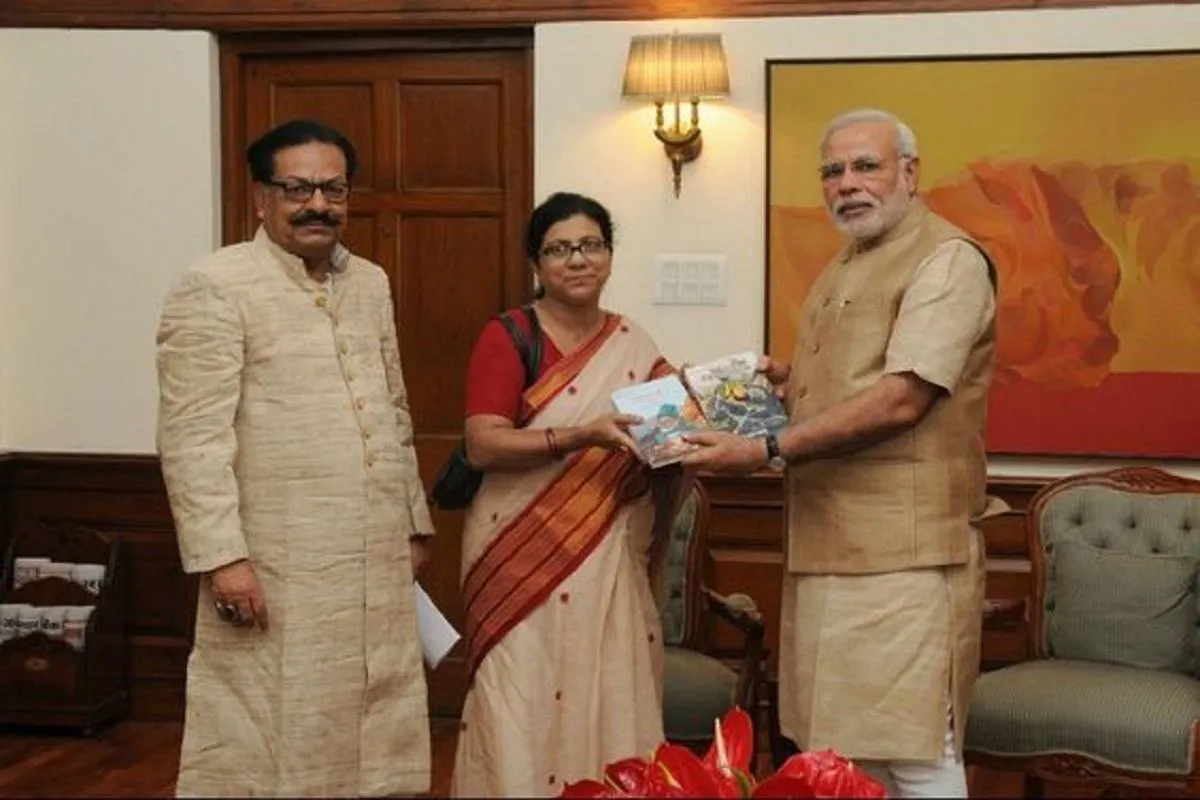
Naheed Abidi, probably the first Muslim woman to work as a lecturer in Sanskrit, who even received acclaim from met Prime Minister Narendra Modi didn’t have an easy start to her career. Initially, she had difficulty finding a job and often left academicians wondering about her ‘unusual’ subject choice.
Abidi was born in 1961, into a Shia Muslim landlord family in Mirzapur in Eastern Uttar Pradesh. Choosing Sanskrit as his subject, Abidi completed her graduation from the Kamala Maheshwari Degree College. She later completed her master’s from Mirzapur’s KV Degree College.
After her marriage with lawyer Ehtesham Abidi, she moved to Varanasi. She continued her literary journey and earned a Ph.D. from Mahatma Gandhi Kashi Vidyapeeth (MGKV). Her thesis during the 1993 doctorate was titled ‘Vedic Sahitya Mein Ashviniyon Ka Swaroop’ (The Form of Ashvinis in Vedic Literature).
In 2005, Abidi started working as a lecturer at Banaras Hindu University without any salary. Soon after, she joined Mahatma Gandhi Kashi Vidyapeeth to work as a part-time lecturer on the daily wage scheme.
Her first book was published in 2008 and was titled Rahim in Sanskrit Literature – an account of the Sanskrit leanings of the famous poet Abdul Rahim Khan-e-Khana. This was followed by Devlayasya Deepa, a translation of the Charag-e-Dair by poet Mirza Ghalib. She then went on to pen her third book titled Sir-e-Akbar, a Hindi translation of 50 Upanishads, first written by the Mughal prince Dara Shikoh. She has also published a Hindi translation of Vedanta, which has been translated into Persian by Shikoh.
“It is the soil of Banaras that attracts people of all religions, and I am fortunate to belong to this great place,” she says of Ghalib during his four-month stay, ‘Chairag-e-’ I admired Banaras. Dare’. “Through my work on Rahim, I want to tell people that he (Rahim) had great respect for Sanskrit and Hinduism,” she says.
Naheed Abidi lives with her husband Ehtesham and their two children, a son and a daughter in the VDA Colony in Varanasi’s Shivpur area. She also serves as a member of the Executive Council at Sampurnanand Sanskrit Vishwavidyalaya.
Despite her ill health, she devotes eight hours a day to her study and writing.
“Though I did not take admission in any college or university, I have been teaching Sanskrit voluntarily since 1994 in several institutions including Banaras Hindu University and Mahatma Gandhi Kashi Vidyapeeth,” says Abidi. Spreading the light of education is the greatest virtue in Islam.

















